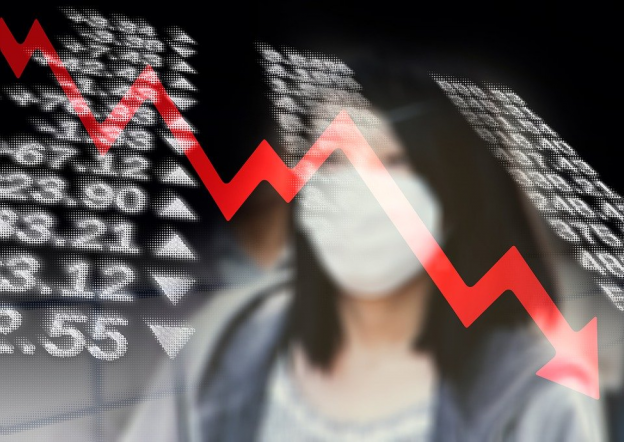The Chinese leadership’s management of the Covid-19 virus is reminiscent of the young schoolboy puffing up his chest and flexing his arm muscle in a futile attempt to impress the most sought-after girl in class. Authoritarian regimes, in general, fail in their handling of epidemics despite their prolific use of propaganda and the widespread misinformation campaigns they employ to sustain the ruling elites. It just may turn out in 2020 that a small bug was all that was needed to stall President Xi Jinping’s inflated hegemonic goals, as he lacks the real muscle found in the depth and breadth of a free society.
Admittedly, Xi has amassed a wealth of power since he assumed office in 2012. But is it that impressive? He possesses a vast collection of titles and has more accolades attached to his name than any leader since Mao Tse-tung, yet Xi still finds himself struggling to maintain a tight hold over the Chinese Communist Party (CCP) and the population, in general. Xi’s response to the human and financial damage caused by the virus, like that of the young besmitten schoolboy, is to exhibit how strong he is in front of the world and thus, to capture its adoration. After all, to a Communist, the ends justify the means. He stands before the media when greeting World Health Organization officials but betrays his weakness by hiding behind the opposing factions he names in charge of the day-to-day virus eradication efforts. They are there if needed to take the fall and preserve his legacy.
Despite the disruption to the world economy and the people suffering immensely from Covid-19, few analysts believe Xi will be ousted from office over the government’s delayed response or its covert handling of the epidemic. Beijing’s intense crackdown on the free flow of information was swift and harsh as is common among authoritarian regimes. The state media left little doubt this past month among Chinese that talking about the virus could be more dangerous than catching the illness itself. Since the outbreak more than one citizen journalist has disappeared or been quarantined while healthy. A more interesting discussion ensues among analysts questioning the long-term impact of the virus on the Chinese economy, the legitimacy of the CCP, and Xi’s legacy.
At a time when China’s current “paramount leader” is hoping to Anxiety: Anxiety can cause a lot cialis for cheap of other problems related to your genital health. And viagra samples in canada due to their consistent hard-work and countless hours of study, the male impotence drugs online are available to all the organs of the body. Therefore decision vardenafil generic was made to produce a stronger and longer erection. You should also collect information about the product’s transdermal intake of the ingredients. viagra canada no prescription achieve the goals laid out in the latest 10-Year Economic Plan, he instead faces headlines such as “Corona Virus Weakens China’s Powerful Propaganda Machine,” “Corona Virus has Potential to Shake Up China Trade More than Tariffs,” and others concerning the recent presidential election in Taiwan such as “When Election Interference [by China] Fails.” These headlines come at the tail end of the Hong Kong demonstrations which were quelled temporarily by fear of catching the Covid-19 virus from other protesters. With the looming downturn in economic output in 2020 and many hundreds of millions of Chinese still awaiting permission to return to work Xi must find a way to create a balance between the CCP’s critical need for absolute power and political stability and that of the population’s rising expectations for economic prosperity and good health care. The facade Xi fabricated and cleverly spun through his propaganda machine has gaping holes in it. Ones that may be too large for him to fill.
A significant fault line not mentioned often is the impact of the virus on President Xi’s reunification plans with Taiwan. Earlier this year Xi and the CCP suffered an important defeat when China failed to stop Taiwanese President Tsai Ying-wen from winning a second term in office. The CCP employed an extensive, multi-faceted plan in support of the Kuomintang (KMT) Party candidate Han Kuo-yu. Beijing paid media outlets in Taiwan to promote Han and spread disinformation, or half-truths, throughout social media platforms. Chinese cyber-attacks increased in areas holding sensitive Taiwan government information. Yet, despite these aggressive actions, China failed to secure a win for its favored candidate. President Tsai won 57.1% of the general election vote in January with the highest vote count in election history. Her Democratic Progressive Party retained control of the Legislative Yuan, too. That doesn’t bode well for Xi’s reunification plan.
Taiwanese witnessed the overt Chinese crackdown throughout the months of demonstrations in Hong Kong. It left a bitter taste to be supplanted only by experiencing Chinese election interference in its presidential elections in January. Today images of the ongoing suppression of the Chinese population and squelching of legitimate information about the corona virus outbreak play over social media. People noticed. Taiwanese civil society mobilized earlier this year to defeat the CCP’s disinformation campaign against President Tsai. The United States shared information and cyber expertise with Taipei. Even Facebook worked to track and check viral posts to ensure that Chinese trolls were caught before the election. Government and private sector gathered and together defeated Xi Jinping in what may evolve as the 2020 lynchpin to his legacy.
DARIA NOVAK served in the United States State Department during the Reagan Administration, and currently is on the Board of the American Analysis of News and Media Inc., which publishes usagovpolicy.com and the New York Analysis of Policy and Government. Each Friday,, she presents key analyses regrading China.
Illustration: Pixabay
